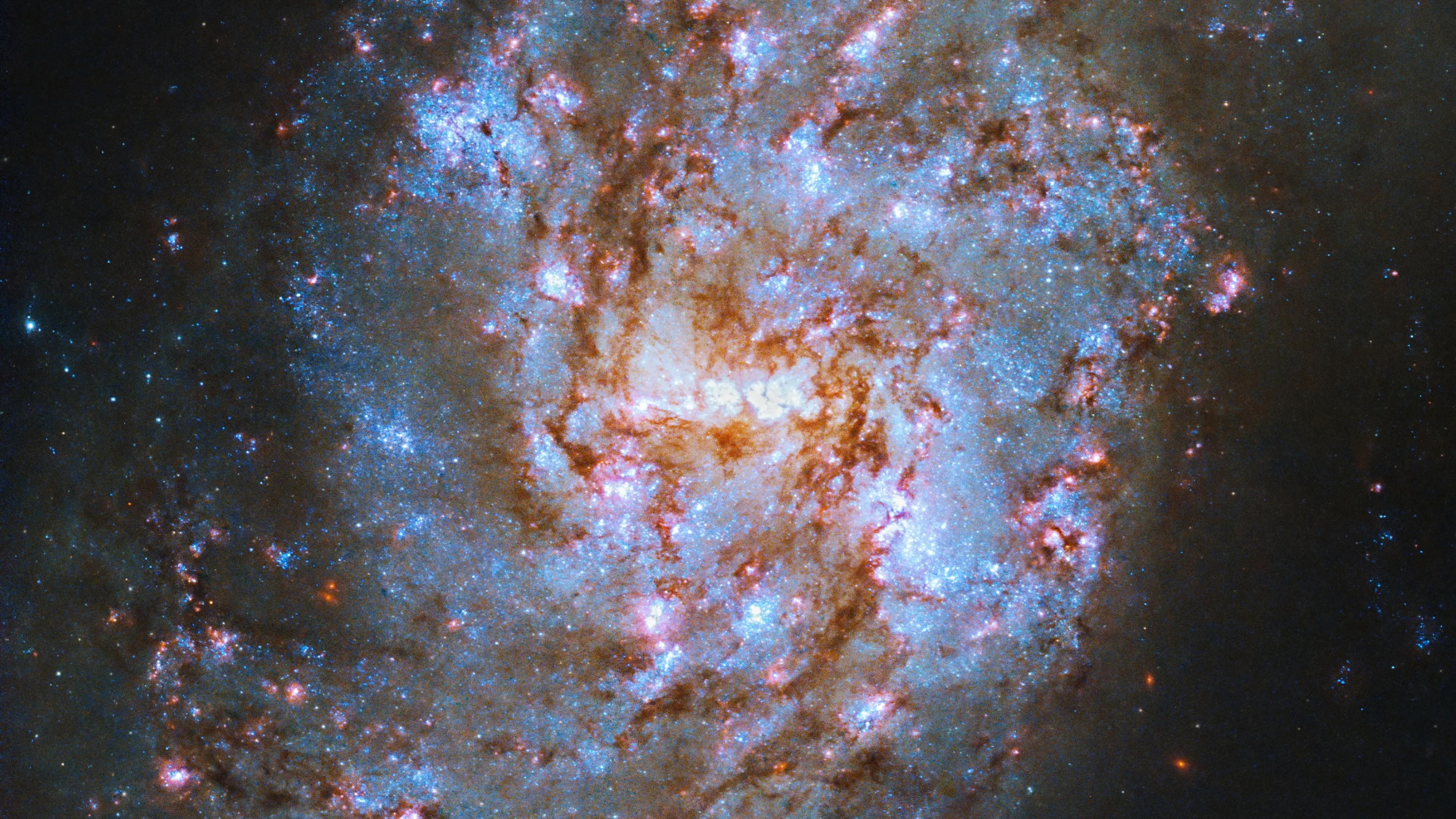Star-studded snake-like galaxy shines in gorgeous Hubble Telescope photo
A breathtaking image by NASA's Hubble Space Telescope features the dazzling NGC 1087 spiral galaxy.

A new Hubble Space Telescope image shines a spotlight on a faraway snake-like galaxy whose swirling arms feature new and old stars.
Light from this galaxy started its journey to Earth roughly 80 million years ago, long before the dinosaurs died out. The image, released as part of NASA's Hubble Galaxy Week from Oct. 2 to Oct. 7, features NGC 1087, a spiral galaxy residing in the constellation Cetus. This particular patch of sky is named after a mythical Greek sea monster and is home to the popular Aquarius and Pisces constellations.
The broken tendrils of red light indicate cold molecular gas, which is the raw ingredient from which new stars form and grow across eons. Comparatively, the blue regions host hot stars formed in the past. Astronomers think many of them are of a rare class of highly unstable stars called Wolf-Rayet.
Related: Hubble Space Telescope: Pictures, facts & history
Despite all the shine, the galaxy has just one known star that went supernova in August 1995, which is also when astronomers noticed a brief spike in the galaxy's brightness.
NGC 1087's most notable feature, however, is its bright-white starry bar at the center of its twisted trails of gas. Here, surprising hints of birthing stars make the galaxy an exciting object for astronomers to study. The bar itself is similar but much shorter compared to the central bar of our very own Milky Way.
Our location within the Milky Way makes it very difficult to precisely estimate the size and shape of this central bar, so galaxies like NGC 1087 that sport similar features are valuable targets to observe.
Get the Space.com Newsletter
Breaking space news, the latest updates on rocket launches, skywatching events and more!
When seen from our skies, NGC 1087 can be spotted just south of the celestial equator, which means it is visible from both the northern and southern hemispheres.
According to a statement accompanying the newly released image, astronomers use Hubble, which launched to Earth orbit in 1990, to learn about what happens to pockets of gas after stars form within them (among many other projects).
Join our Space Forums to keep talking space on the latest missions, night sky and more! And if you have a news tip, correction or comment, let us know at: community@space.com.

Sharmila Kuthunur is a Seattle-based science journalist focusing on astronomy and space exploration. Her work has also appeared in Scientific American, Astronomy and Live Science, among other publications. She has earned a master's degree in journalism from Northeastern University in Boston. Follow her on BlueSky @skuthunur.bsky.social









